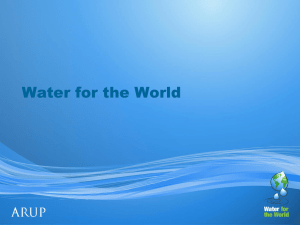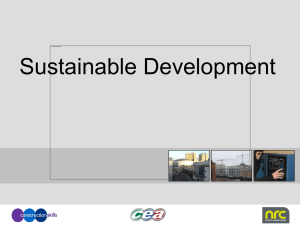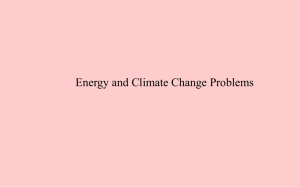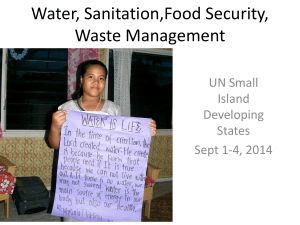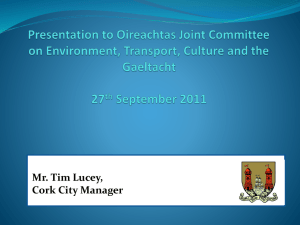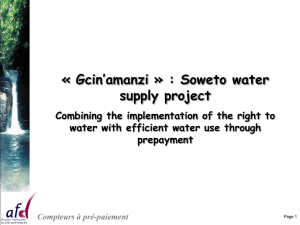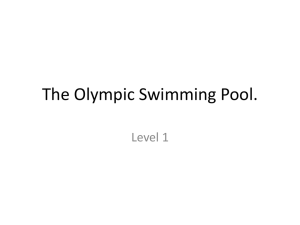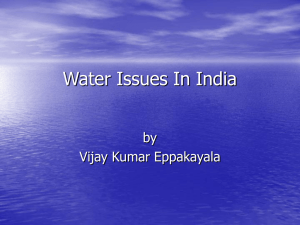Water-Conservation-for-Businesses
advertisement
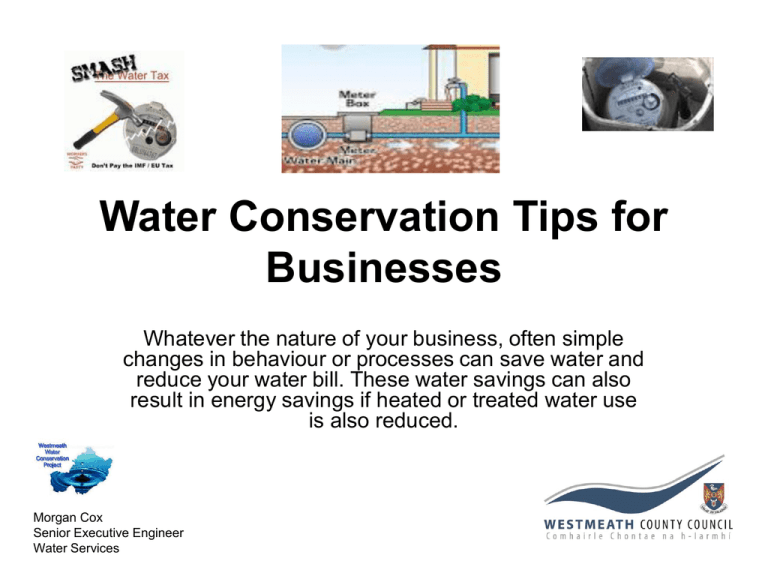
Water Conservation Tips for Businesses Whatever the nature of your business, often simple changes in behaviour or processes can save water and reduce your water bill. These water savings can also result in energy savings if heated or treated water use is also reduced. Morgan Cox Senior Executive Engineer Water Services Action Plan • This simple action plan is a great start to help take control of your water use. 1. Know Your Business 2. Review your Usage 3. Include your Employees 4. Invest in water saving products Know your business • Think about where you use most of the water in your business - these are the key areas to target to reduce your consumption. Producing a sketch of your site, showing the water use in different areas will also help you to do this. Compare this information with the volume of water recorded on your meter to undertake a simple water balance for your site. Review your bills and meter readings • A bill increase from one period to the next, when there hasn't been any changes on site should be a prompt for you to consider – a possible leak internally / externally? – a piece of equipment running longer than necessary? • A simple way to check for leaks or unknown use is to take regular meter readings over a period when no water should be running, such as the weekend or overnight. Include your employees • Your employees are key to efficient water use, it is often their behaviour that can influence water use the most. • Pay particular attention to how water is used in wash-down areas and kitchens hoses and taps left running can use significant amounts quickly. Invest in water-saving products • Simply having the right fittings and appliances can save huge amounts of water. • Invest in water-saving products - many have short payback periods. – – – – – Tap / Shower Head Aerators Dual Flush Toilets Cistern Displacement / Control Waterless Urinals Rain Water Harvesting Water Charging • You are charged for Water in & Water Out – “Every Drop not taken or saved is a double saving” • Your charge is made up of 2 parts – Standing Charge – Volumetric Charge Tap Aerators • Saving between 2 / 5 litres min. • Typical use 1 hr a day – 120 / 300 litres saved = 840 / 2100 litres / week • An annual saving of €88 / €220 per tap Showerhead Aerators • Saving between 5 / 10 litres min. • Typical use 1/4 hr a day – 75 / 150 litres saved = 525 / 1050 litres / week • An annual saving of €55 / €110 per shower Dual Flush Toilets • Saving between 3 / 6 litres per use. • Typical use 16 times a day – 48 / 96 litres saved = 336 / 672 litres / week • An annual saving of €35 / €70 per toilet Rain Water Harvesting • Sizes between 100 / 1500 litres available. • Use for Gardens / Fountains / Yard Wash • An annual saving of €5 / €75 (based on 1Use per month) Waterless Urinals • One Valve alone can save between 40,000 and 50,000 litres of drinking water! • At a charge of €1.00 per 1,000 litres both in & out that a saving of €800 - €1000 / Urinal Urninal Controller • For Example • 10 litres x 3 flushes per hour x 24 hours =720 litres per day 720 litres per day x 365 days =262,800 litres per year • After Installing a Smart Flush, cisterns will only flush when the area is occupied. • 10 litres x 3 flushes per hour x 8 hours =240 litres per day 240 litres per day x 5 days x 52 weeks =62,400 litres per year • Savings 262,800 litres - 62,400 litres =200’400 litres per year 200 cubic metres x €2.50 =€500.00 savings per year Water Conservation Tips for Businesses Top Tips • Appoint a member of staff to monitor water use and identify water-saving measures, i.e. through regular site checks and meter readings • Check your meter location and supplies it measures • Check your meter reading regularly - for larger sites you could consider data logging key metered supplies to support this • • • • • • • • • • • • • Develop a water management plan for your site Educate employees about implementing water saving measures Ensure new equipment is water and energy efficient - it will pay off in the long term Fit sub-meters across your site to identify areas of high use Fit water-efficient devices i.e. push taps, low-flush toilets, flow regulators or restricters. The payback can be as little as five weeks Fix dripping taps and leaks as quickly as possible Get buy-in from management and involve employees with responsibility for facilities, finance and operations in water-saving measures from the start Install a hippo or save-a-flush device in toilets to reduce water use Invest in alternative water sources i.e. Rainwater Harvesting Lag your pipes to reduce leaks in cold weather Reduce urinal flushing by fitting a urinal control Review your plans to reduce water at least once a year Use treated waste water for industrial uses, toilets and irrigation which will reduce drinking water use and save you money Questions ?

